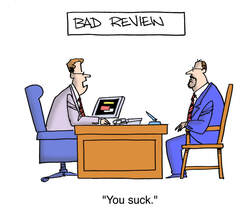 I read a post in a writer’s group on Facebook recently that bemoaned the fact that so much of the advice that was posted there was contradictory. It was ironic that this post was being made on social media, because all human life is there in its multitudinous forms. Advice spans the gamut from barking mad to the blatantly obvious (or is it that obvious?). Some of the “advice” being offered may in fact be mischievous in its nature, deliberately trying to mislead in order to provide some form of amusement for the person posting it. But the bottom line is that most of the advice offered on social media is actually opinion and is therefore subjective in its nature. While people try to turn it into a truism, it often doesn’t work for everyone.  The first point I must make is that what works for one author doesn’t necessarily work for another. We, for example, have had considerable success selling books using Amazon Ads. However, we know of many authors and small publishers who have been far less successful. There will be underlying reasons for that. A good book is a good book and advertising should be able to sell it. But there may be reasons why buyers aren’t buying the book that have nothing to do with its quality. But the simple fact is that where we find success with advertising, some authors don’t, so any advice we offer relating to our use of advertising is going to be coloured by our experiences, as is theirs.  Similar lessons apply to the writing advice offered to authors on the same group. It is quite common for authors to post extracts of their WIP and ask for comments. Some authors respond like cheerleaders, whooping with encouragement for the work. That’s fine. We all need encouragement from time to time. But it’s only fine up to a point. Other authors are more critical. Very often their comments get attacked by the cheerleaders for failing to be encouraging. But if someone is making obvious blunders in their writing, isn’t it better for them to be told so that they can correct the mistakes before it’s too late? We here at Selfishgenie Publishing are great believers in supporting writers, especially Indies. But gaining quality feedback is an essential part of the growth of a writer.  “Life long learning” and professional development are well established processes in many companies, because most employers understand that it is better to develop the skills of existing employees than it is to sack them and recruit someone new. But many authors don’t have anyone to help them to develop, except for other authors and the channel by which many authors are provided with that development help is social media. If we just act as cheerleaders, then it may boost the spirits of the author who asked for the critique, but it won’t do a thing for their development as a writer. OK, perhaps we have to be careful how we word things. “You suck” may be an accurate reflection of the quality of the writing but it doesn’t help the author any more than the cheerleading helps them. But to get back to my original point that most opinions or advice are subjective. So how does the author know which advice to listen to and which to ignore?  You can’t. If you could, you probably wouldn’t need to seek the advice anyway, because what is being offered is so blindingly obvious. But in writing we always have an escape route. Nothing that is done can’t be undone. We are not building the Titanic, so the mistakes involved in design and construction won’t result in the ship sinking. If we make a mistake, we can go back and rectify it. Even if we get as far as publishing a book, we can always “unpublish” if we only get negative reviews. It should always be remembered that we learn more from our mistakes than we do from our successes. Even if the only thing we learn is not to ask for advice about writing on social media!  But I do think that social media is a valuable resource for writers who want support and advice. So, what if the advice is contradictory? What can we do about it? We can exercise judgement. For a start, what is the majority view? I’m not going to suggest that majorities are always right (just look at election results), but it is more likely that a majority view will reflect what people have found to be successful rather than unsuccessful. Secondly, you can put the bits of contradictory advice side by side and weigh them in the balance. Intuitively, which sounds as though it might be right? We can go back to the person who offered the advice and ask them to give us a real life example of the advice working. What they provide (if anything) should tip the scales one way or the other.  Thirdly, what are the consequences of making the wrong choice? Will you just be wasting a bit of time to put things back as they were? Or will it involve a loss of money because a bad decision was made? I would worry far more about decisions involving money than I would about decisions that only involved time – and I regard my time as being precious. Finally, you can actually ignore all the advice that has been offered and go with your gut instincts. Let’s face it, we make far more decisions based on that during our lives than we ever do after taking advice and look how well that turns out. When it comes to writing there are actually very few rules. When it comes to marketing the finished book there are things that work and things that don’t, and you can learn which work the best. There is definitely no substitute for learning when it comes to marketing, so don’t seek marketing advice on social media, seek it from a recognised training provider.  A lot of marketing advice is genre specific. If you write for YA audiences, you need to be thinking in terms of where young people are most likely to see your marketing messages. If your books are aimed at older audiences, you need to think about where they are going to see your marketing messages. The two places are likely to be very different. So, when you see advice that says “Doing this (whatever “this” is) really helped my book sales” you have to consider why it was successful for them and make an objective judgement about whether it will also be successful for you.  And if you want to learn how to market properly there are lots of blogs and tutorials available on-line on a wide range of subjects, but you have to do a bit of research to find them and then spend time reading/watching them. Social media may provide you with a short cut, but it is never an adequate substitute for proper research. But research takes time. But so does correcting mistakes. When I worked in business I was always amazed by how many people never had time to do the job right first time, but they always had the time to do it again when it went wrong. You can do things once correctly or you can waste time by having to re-do them. Which do you think following advice on social media is most likely to result in? If you have enjoyed this blog, or found it informative, then make sure you don’t miss future editions. Just click on the button below to sign up for our newsletter. We’ll even send you a free ebook for doing so.
0 Comments
Leave a Reply. |
AuthorThis blog is compiled and curated by the Selfishgenie publishing team. Archives
June 2025
|
 RSS Feed
RSS Feed